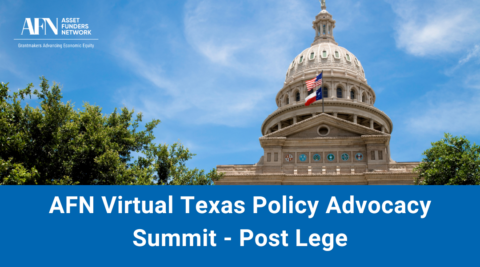
FROM THE PRESIDENT AND CEO
MARCH 2023
AFN engages grantmakers and financial institutions to increase economic equity. By raising strategies and informing grantmakers and grantees on approaches as well as facilitating collaboration and alignment in their efforts, our members – especially in our regional chapters – increase opportunity and equitable wealth building. Our economic equity and justice focus intentionally examines facts and root causes creating wealth gaps across race and gender. This intentional focus makes AFN a leader in philanthropic investment for a more economically just and secure future for households.
The intentionality of a racial, ethnic and gender lens has never been more important. Women continue to have significant challenges to experiencing economic equity in the workforce or asset building, especially women who are Black, Latinx, Indigenous, or Asian. And that was before the pandemic had the biggest adverse impact on employment and income and health security. Thanks to many aligned efforts, investments and advocacy, there continues to be progress to build upon.
Care economy workers – the vast majority of whom are women – continue to be underpaid given the value of their work, but many grantmakers are cleareyed about their value to the economy and to the community. Thus, many are supporting advocates and efforts to make this sector provide better pay given its value. Indeed, many policymakers are addressing the potential to increase economic equity for many women, especially in child care – a majority of whom are of color – with significant public investments in this sector to improve quality, availability and pay-benefits package for the workers. These efforts are promising steps forward.
In our Women’s Wealth Gap series, we identify the ongoing long-term concern of the vulnerability of women to an insecure retirement. Lower wages, the way Social Security benefits are computed to memorialize wage disparities (by reflecting wages), and the inequity of who has access to employer pension and retirement account contributions, all conspire systemically to ensure the long term insecurity of women in the workforce in low and many middle income jobs. A recent AARP survey reveals that 25% of women 50-64 are not confident they will have enough money to live comfortably through their retirement years. As a self-reported economic projection, it is likely an undercount especially given housing and energy costs (including the costs to move away from fossil fuels) if there are not systemic changes and the creation of targeted and meaningful economic supports.
AFN looked at household balance sheets for households led by women of color, finding that fees and fines placed an undue drain on the income of female-headed households and low income households of color. The continued philanthropic investment in efforts to expose fines and fees as an inequitable and unjust source of potential income for local government continues to be an actionable way for philanthropy to invest and use their influence to change the system that unduly burdens women. Similarly, the present legal abuse of the judicial system by debt collectors, especially by medical debt collectors, will not be restrained without continued philanthropic efforts spotlighting the abuse and the reforms needed such as much higher income and asset protections from garnishment.
The recent Federal Securing a Strong Retirement Act of 2022 was helpful especially to those with the disposable income while working who can contribute more to the accounts. The Act revealed that a Congress can act to accept a real policy role in addressing retirement insecurity after a lifetime of work. But the bill’s solutions remain out of reach for most lower wage workers. There is more to do.
Initiatives tested by philanthropy and adopted in several states are also moving the narrative. Auto IRA and targeted policies to reduce taxes on retirement as well as to reimburse taxpayers for uncovered medical costs are incremental but meaningful changes. AFN members will continue to encourage new systemic supports.
Of course, income security is the foundation for asset building. Thus, guaranteed income is a key strategy for the future security of households especially those led by women. It will help reduce debt, create opportunities for savings, and increase the likelihood of mortgage approvals. These efforts need philanthropy, their grantees, and financial institutions working together to lead the discourse, prove what works, and convince officials of needed system change.
As National Women’s History Month comes to a close, consider if your investment in economic justice or actions can do more to secure increased income and asset security for the women in your community. Come, learn what others are doing, and share your insights. Engage and join the conversation with your peers at AFN. Your participation helps spur innovation that will ultimately drive system change to greater economic justice.



